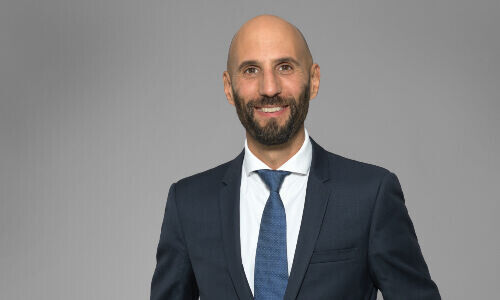Lombard Odier CIO: The End of US Exceptionalism
The global economy is shifting away from US-led growth and into a period of deceleration, warns Lombard Odier’s chief economist Samy Chaar. While a recession may be avoided, political risks and investment paralysis loom.
Mr. Chaar, the first half of this year was turbulent. Will the second half follow the same path?
We are seeing a shift away from a US-dominated growth narrative toward a clear deceleration. This is being driven by political uncertainty and tariffs, some of which have already been imposed by President Donald Trump. The environment is becoming more difficult. That said, a recession is not our base case at this point.
You cite uncertainty as a key factor. Should we expect a wave of layoffs?
Companies are operating in a climate where they no longer know what rules will apply tomorrow. As a result, they’ve become more cautious when it comes to capital expenditures. We’re not seeing mass layoffs, but firms have effectively put hiring on hold.
So your base case excludes a recession. Why?
There are three main reasons. First, labor markets in both the US and Europe remain solid – people are employed, and we’re not seeing widespread job losses. Second, for the first time in years, we’re seeing positive fiscal signals out of Germany. The investments announced by the new German government are what we would call 'good debt' –they generate economic stimulus.
«As long as President Trump retains full control the political environment will remain volatile.»
Third, China is doing everything it can to avoid a hard landing. While it hasn’t announced a large-scale stimulus, targeted support measures remain likely.
You mentioned political uncertainty, largely driven by US policy. How long will this persist?
As long as President Trump retains full control—meaning the Senate, the House of Representatives, and the Supreme Court—the political environment will remain volatile. I see little chance of stabilization before the midterm elections in November 2026. For companies, this translates into postponed investment decisions and hiring freezes. It’s a classic 'wait and see' scenario.
Is there any clear winner in this environment?
It’s hard to say whether there will be any true winners. Perhaps China ends up losing more than the US – in which case, Trump would have achieved his political goal of weakening China. What will be interesting is whether Europe—especially Germany—can benefit from its pivot toward greater economic autonomy and infrastructure investment. I’m hopeful this could generate momentum for a broader European recovery.
Are you already seeing a shift in capital away from the US?
Yes, but only to a moderate degree. The US remains the most important market globally. At one point, US assets accounted for 70 percent of global equity market capitalization – a historic high. If the narrative of US exceptionalism begins to fade, capital will likely flow back toward Europe and select emerging markets. That said, the US market will remain dominant – just not as overweighted as before.
«The dollar can weaken without ending the global 'dollarization' phenomenon. »
How do you assess the current situation in China?
China’s economy is structurally divided. The industrial and manufacturing sector remains competitive and is performing well. However, domestic demand is weak. An aging population, a lingering property crisis, and high savings rates are suppressing consumption. The government is likely to provide targeted support but without deploying a large-scale stimulus. We expect stabilization, not a boom.
The dollar has lost ground. Are we witnessing the end of an era?
No. The dollar can weaken without ending the global 'dollarization' phenomenon. As long as the US remains the world’s main source of aggregate demand – and Europe, China, Japan, and others remain export-driven economies – the dollar will continue to be the world’s dominant reserve currency. There is simply no viable alternative until a new global demand engine emerges.
Samy Chaar is chief economist, CIO Switzerland, at Lombard Odier.






















